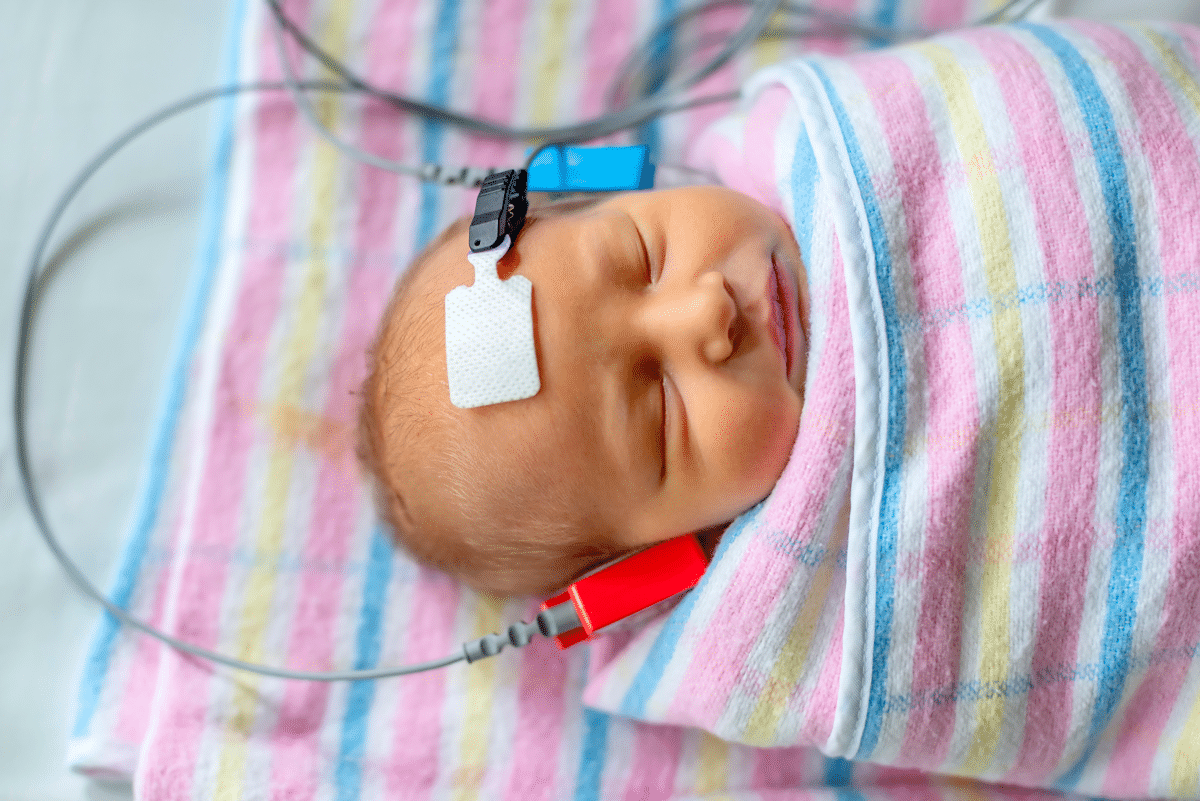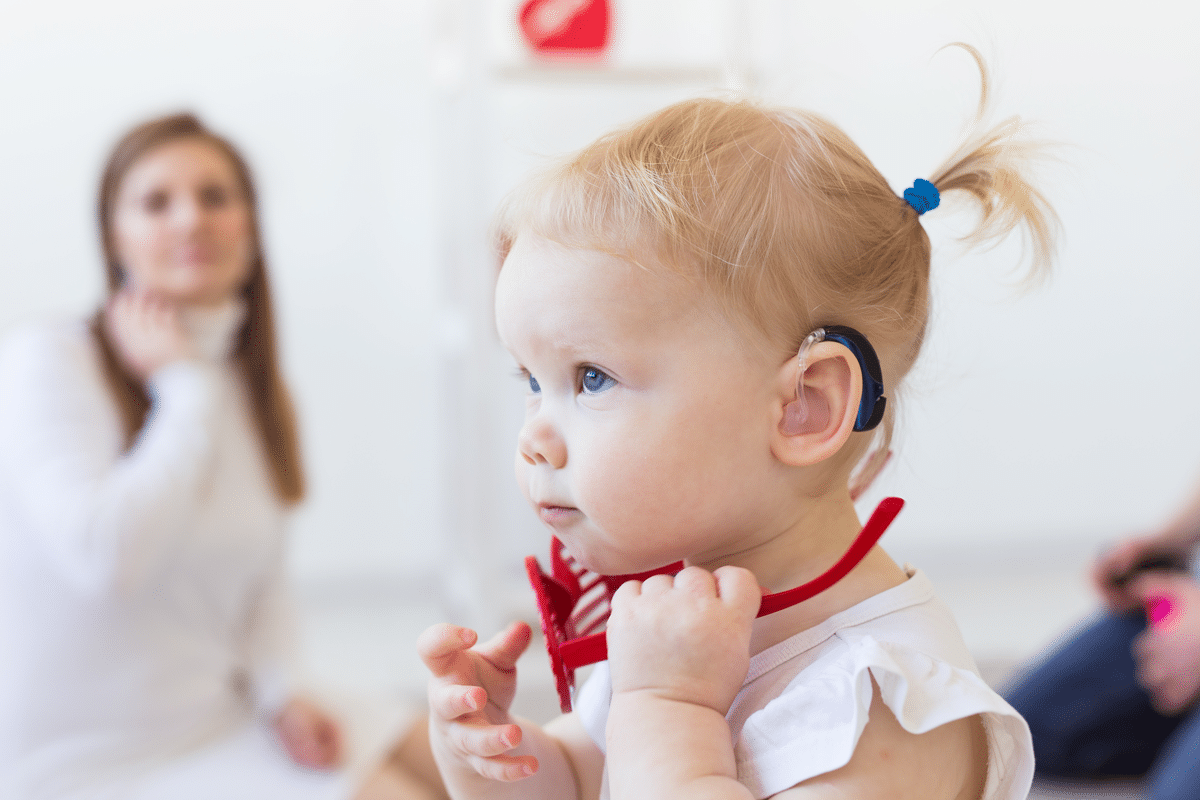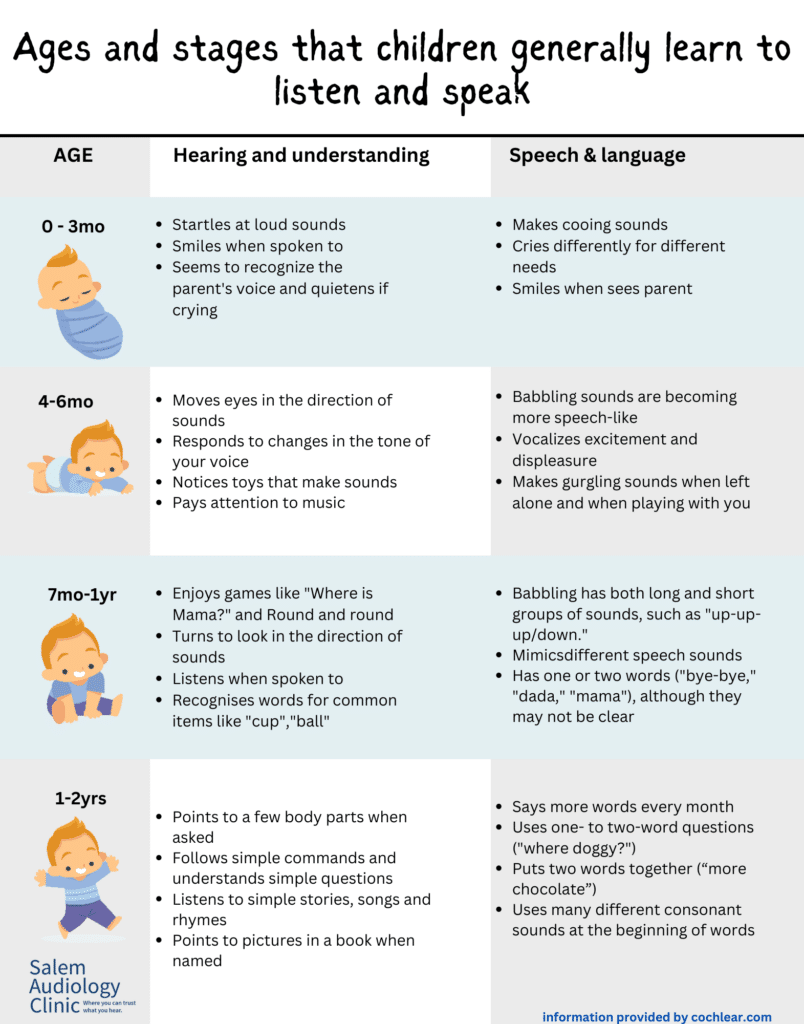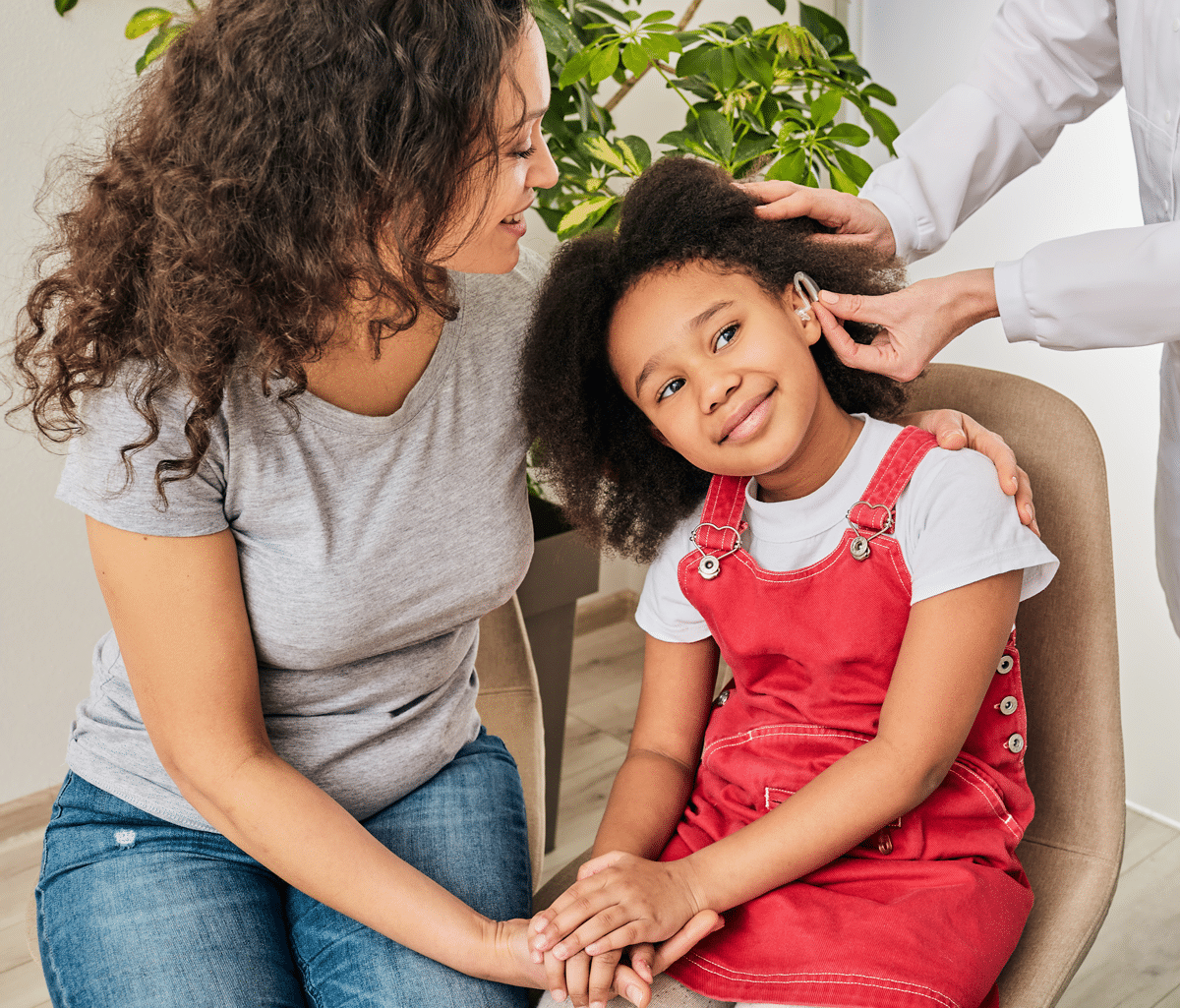
It can be challenging to notice the signs of hearing loss, especially for children. Many children with mild or progressive hearing loss appear to manage exceptionally well. Their speech and language development is normal in the early years, and they do well at school as they age. Hearing loss can impact a child’s ability to develop speech, language, and social skills. The earlier children with hearing loss begin receiving treatment, the more likely they are to reach their full potential.
How Hearing issues are Diagnosed
It’s best to catch hearing issues early, due to higher success rates, if it starts before a child is six months of age, making it essential that newborns have a hearing screening prior to leaving the hospital.
If your baby was born at home or a birthing center or didn’t have a screening before going home, check their hearing within the first three weeks of life. Not passing a screening doesn’t mean a baby has hearing loss. Still, it does mean the baby should be retested as quickly as possible, ideally within a month of birth. If hearing loss is discovered, treatment should begin right away.
Kids with regular hearing should continue to have their hearing checked at regular checkups. Hearing tests are usually done during ages 4 – 8 and in the preteen and teen years. You should also have their hearing checked if any concerns arise.

Possible Signs of Hearing Loss in Infants or Toddlers
- Does not seek out or detect where sound is coming from.
- They Still babble but need to progress to more understandable speech.
- They have stopped babbling and experimenting with making sounds.
- They do not react to loud sounds.
- They do not respond to voices, even when being held.
Potential Signs of Hearing Loss in School-Aged Children
- Does not follow simple commands, such as “get your coat,” or understand simple directions.
- Is easily discouraged or experiences communication meltdowns.
- They struggle with speech and communication skills.
- They depend on lip-reading.
- They become drained at the end of school from concentrating on understanding speech.

Attend Follow-up Visits.
It’s critical to see your hearing care professional for follow-up visits to fine-tune the sounds you hear, the fit, and how well the hearing aids are sitting in and on your year, and discuss which types of environments you find most challenging to hear in. Generally, people will return to their hearing care provider within two weeks of being fitted for their hearing aids to fine-tune their devices and adjust frequency levels if needed.

Treatments for Hearing Loss?
The treatment type depends on the severity, what caused it, and what type of hearing loss it is. A team should see children with permanent hearing loss of specialists, including an ear, nose, and throat (ENT) doctor, speech-language therapist, audiologist, and education specialist.
Medical treatments to help kids with hearing loss.
These include:
Hearing aids
Hearing aids amplify sounds. Infants with permanent hearing loss who get hearing aids prior to six months have a higher chance of improving their language development. Based on your child’s individual needs, your audiologist can help you pick what’s right for them.
Frequency modulation (FM) systems:
An FM system helps decrease background noise and makes a speaker’s voice louder. The person talking (such as a teacher) wears a small microphone and transmitter. The transmitter sends a signal to a wireless receiver that the child wears either on the ear or straight to a hearing aid. It’s portable and can also work at home or in other places with a lot of background noise.
Cochlear implants:
Cochlear Implants (CI) may help children with severe hearing loss when a hearing aid can’t. A CI is a surgically placed device that circumvents the parts of the ear that are not working correctly, stimulating the hearing nerve directly. After therapy and training, kids with a cochlear implant can learn to speak and hear well.
Hearing habilitation:
This form of therapy helps children born with hearing loss learn how to listen and communicate. These therapy methods may include speech (lip) reading, learning American Sign Language (ASL), or (AVT) speech therapy. Your audiologist will work with you and your child to discover the best way for your child to communicate. Children who develop hearing loss when they are older also learn these communication techniques through hearing rehabilitation.
What to do if you think your child has hearing loss
Mild hearing loss can cause speech, language, and adolescent learning problems. Early intervention with babies and toddlers with hearing impairments is critical. Services for free therapy exist in each state. Older kids may qualify for special education services once in school. This help early on is the best way to prevent delays and improve development in children.
The first step is to see your child’s doctor and speak with them about your concerns. From there, they may check your child’s ears and recommend a course of action.
For more information, call us Today at (971)701-6322and speak with one of our highly trained audiologists.
